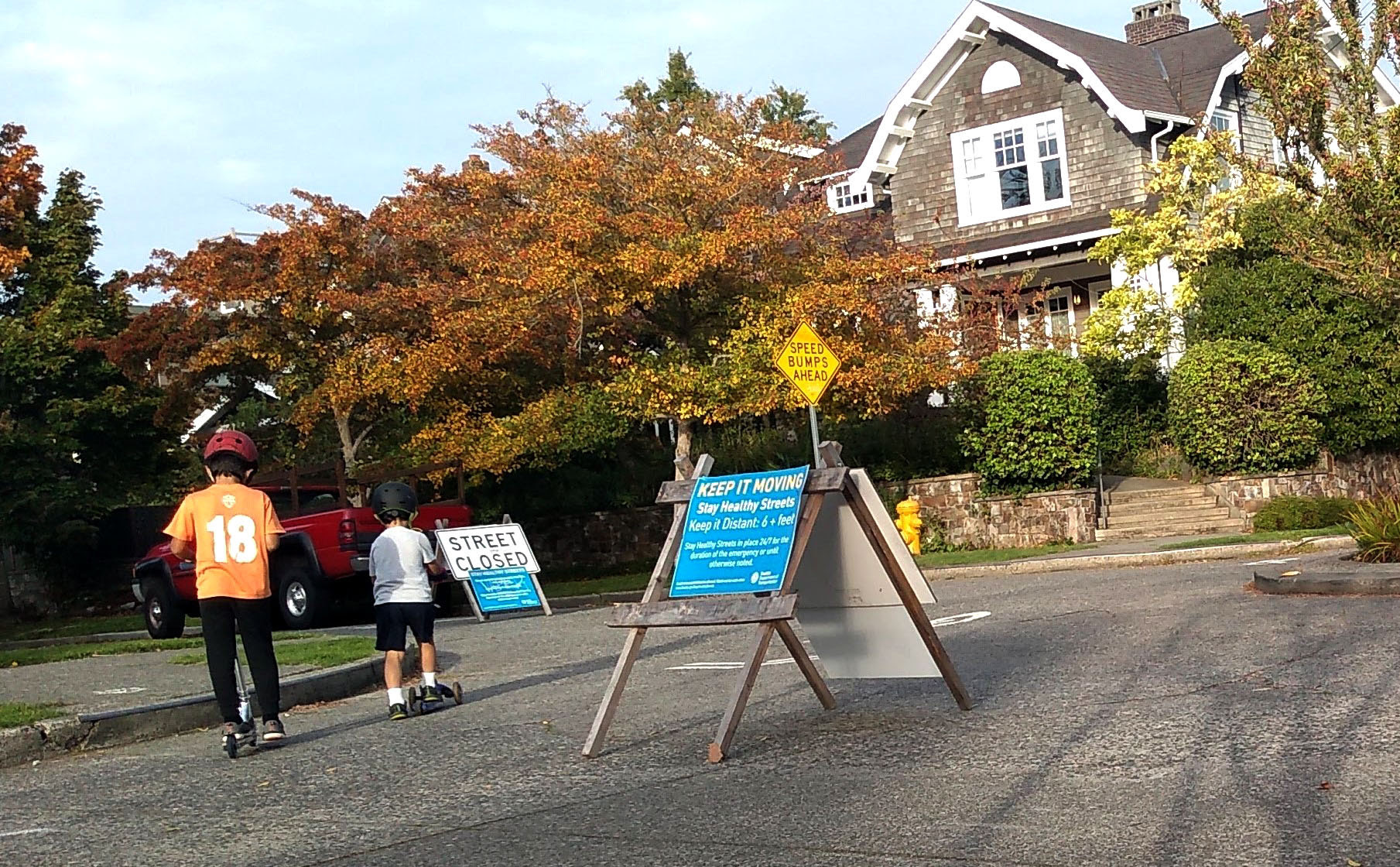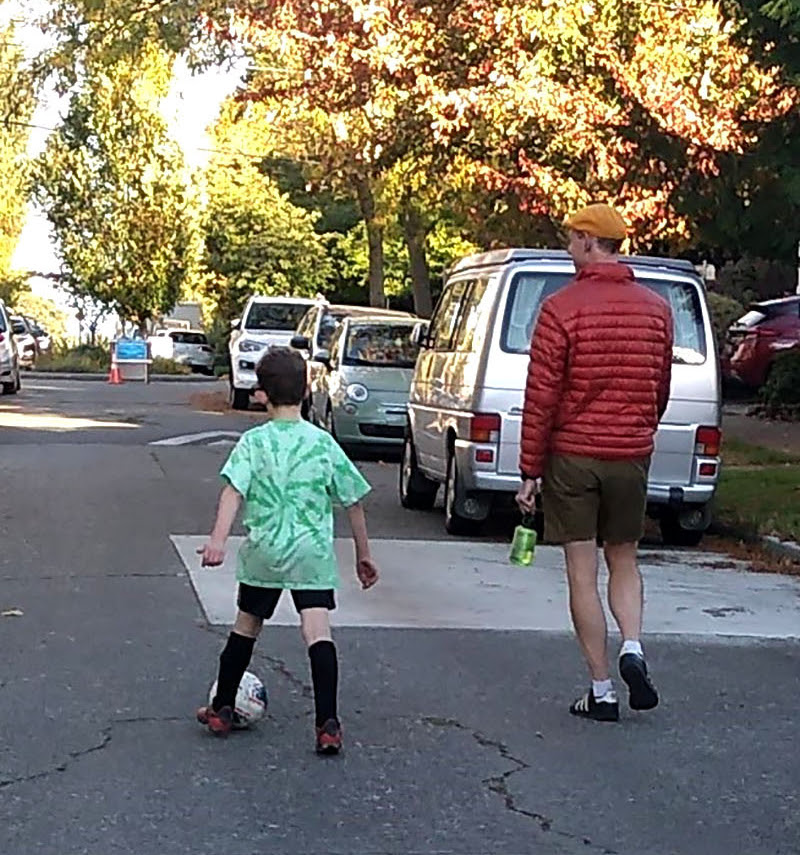Tell the City: Public space programs should be equitable, accessible
- clara
- Feb. 18, 2021
Support a Stay Healthy Blocks program that works for people!
Seattle's Stay Healthy Blocks is a DIY open space program that allows people to walk, roll, and play in calm neighborhood streets while remaining socially distanced. While enjoyed by many, the program is currently inequitable and extremely burdensome. Stay Healthy Block permit holders from across the city came together to write a letter asking the city to improve the program. Click here to send an email in support of an equitable and accessible program that provides open space for people. When Seattle rolled out the first Stay Healthy Streets in mid April, neighbors all over the city reached out, asking how to make a Stay Healthy Street in their neighborhood. The decrease in traffic was increasing speeding and other unsafe driver behaviors, and people wanted outdoor space to recreate outside of their homes and to get to essential jobs and services. But the City initially focused the program only on existing neighborhood greenways, a network of residential streets that already prioritizes people walking and biking and discourages vehicle traffic.
Last fall, SDOT launched the Stay Healthy Blocks program, in which neighbors could create their own space to walk, roll, and play in the street. We were thrilled, and heard positive feedback from people across the city. Normally reserved Seattleites texted the contact numbers listed on signs, saying, “I can’t say how much this has improved my life.”
When Seattle rolled out the first Stay Healthy Streets in mid April, neighbors all over the city reached out, asking how to make a Stay Healthy Street in their neighborhood. The decrease in traffic was increasing speeding and other unsafe driver behaviors, and people wanted outdoor space to recreate outside of their homes and to get to essential jobs and services. But the City initially focused the program only on existing neighborhood greenways, a network of residential streets that already prioritizes people walking and biking and discourages vehicle traffic.
Last fall, SDOT launched the Stay Healthy Blocks program, in which neighbors could create their own space to walk, roll, and play in the street. We were thrilled, and heard positive feedback from people across the city. Normally reserved Seattleites texted the contact numbers listed on signs, saying, “I can’t say how much this has improved my life.”
 Despite the positive reception, the City imposed restrictive rules on the second permit cycle that drastically reduced the effectiveness of the program and ensured that only those privileged with time and money can participate.
Despite the positive reception, the City imposed restrictive rules on the second permit cycle that drastically reduced the effectiveness of the program and ensured that only those privileged with time and money can participate.
- Limited hours cause confusion for drivers and extra labor for permit holders.
- Sign requirements are costly.
- Storage requirements make the program inaccessible for those living in apartments or in Seattle's densest neighborhoods most in need of public open space.
- Groups that forget to move signs daily have had to risk citations and fines.
 We call on the city to improve the program so that every neighborhood can enjoy the benefits of streets that prioritize people:
We call on the city to improve the program so that every neighborhood can enjoy the benefits of streets that prioritize people:
- Allow the Stay Healthy Blocks to be in place 24/7, mitigating the need to move and store barriers.
- Restore all Stay Healthy Blocks applications that have not been renewed.
- Provide the necessary equipment to permit holders to close the blocks.
- Work with the residents who want to make their Stay Healthy Blocks permanent.
- Assist residents to start Stay Healthy Blocks, especially in areas without adequate open space.
 Clara Cantor
She/her
Community Organizer
Seattle Neighborhood Greenways
Website - Twitter - Facebook
Clara Cantor
She/her
Community Organizer
Seattle Neighborhood Greenways
Website - Twitter - Facebook
